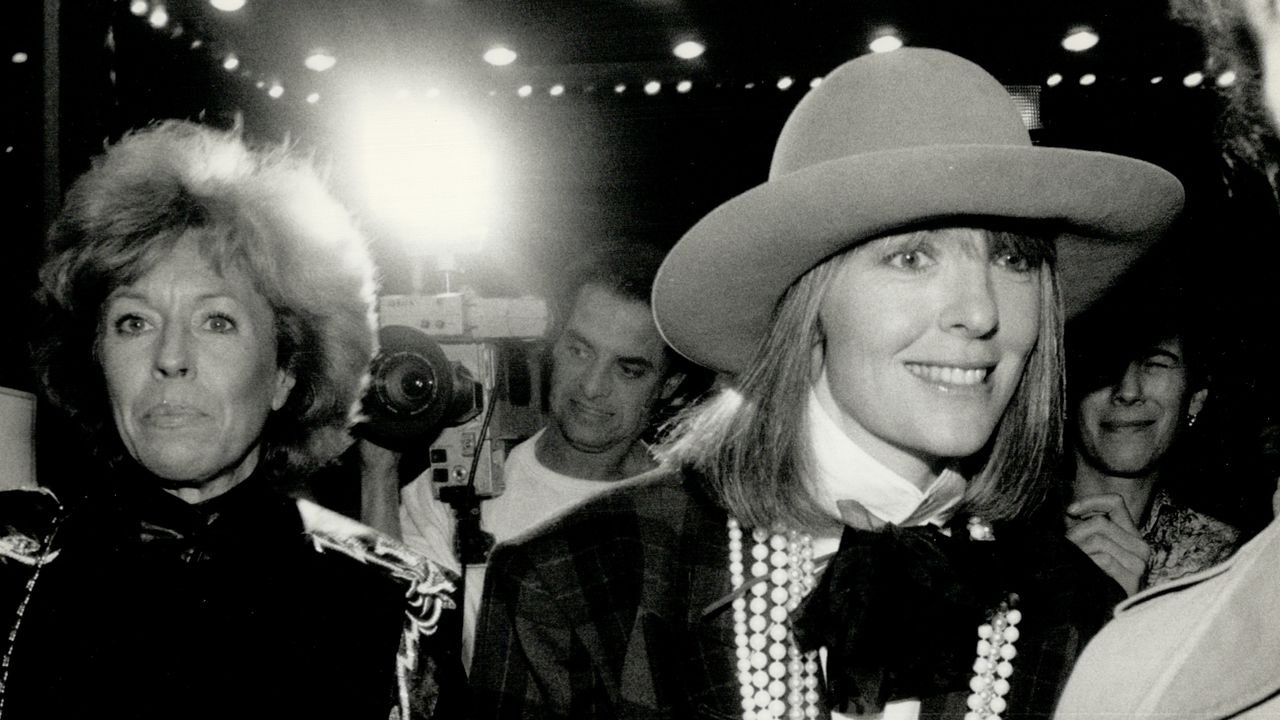
Editor’s note: The Hungarian Countess Louise J. Esterhazy was a revered — and feared — chronicler of the highs — and generally lows — of fashion, society, culture and more. Over the course of several decades (although she never really counted and firmly avoided any reference to her age), the Countess penned her missives from her pied-à-terres in Manhattan, Nantucket, Paris, London and Gstaad, as well as wherever her travels took her, from California to Morocco.
And it seems the Esterhazy clan by nature is filled with strong opinions, because WWD Weekend has now engaged the Countess’ long-lost nephew, the Baron Louis J. Esterhazy, who has written from Europe to express his abhorrence about the growing sense of entitlement among the rich and aristocratic.
Do you know the English language has around 250,000 words, versus only 100,000 for French and a surprisingly modest 86,000 for Chinese? It is said that Shakespeare himself invented more than 1,500 words.
Yet I am increasingly baffled by the use of some modern vocabulary. Much is about obfuscation, such as when the person cleaning the toilet at the airport wears a jacket emblazoned with the words “Hygiene Operative” on the rear. Does it make the job at hand more palatable? I sincerely doubt it.
Certainly when I see an item for sale labeled “pre-loved” it makes me no more enthusiastic to acquire a secondhand item. And by the way, does “pre-loved” mean it was loved before being cast out by the previous owner and hence it’s no longer loved? No thanks.
I noted recently when a SpaceX craft exploded shortly following lift off the company’s PR team talked of a “rapid unscheduled disassembly,” which in my book wins the award for best corporate bovine fecal matter I have ever come across.
These days, shop windows, display cases and store offerings are “curated,” as indeed are menus, gardens, bookshops and goodness knows what else. This gives the individual doing all this “curating” an artistic license and additional importance. This marries with the increasing prevalence of the words “craft,” “artisanal” and, in many cases, “artisanal craftsmanship” — because combining the two synonyms makes the “crafting” even more exclusive. Beer is no longer simply brewed but “crafted” by an “artisan.” This word might imply that the production of said item may also be small, sub-scale and doubtless involves some passion, a possible lack of professional experience and may well be overseen by someone sporting considerable facial hair. I would suggest enjoying the output is all well and good, but would advise not making a financial investment into such a business enterprise.
Another word closely aligned to this “space” is “sustainable.” Often sustainability no longer implies that slave labor wasn’t deployed, or that there hasn’t been a purposeful reduction in the tuna population, but instead that there has been some vague dialogue entered into about not willfully raping the planet. I purposely use the word “space” here because I notice that it avoids being specific, like the young man who recently informed me that he worked in the “defense space.” That could be anything from a civil servant in the Defense Department, a rocket scientist at Lockheed Martin or he’s a “double 0,” licensed to kill. I was informed…but really not, at the same time.
The youthful often launch into informing others of what they call “my narrative,” as of course telling others one’s “story” seems less serious and even a bit childish. Often the “narrative” will be accompanied by the expression that the individual is “living in their truth.” Don’t ask me. I always suspect that those who claim to be “living in their truth” in reality mean the speaker is on the brink of announcing something others will find offensive. It’s therapy-speak for “this is what I believe and I am now emboldened enough not to care if I upset others.” When you hear the expression, get ready for a mental slap on the cheek.
On the other hand, I do enjoy the euphemism of a drunk being in said state due to having been “over served.” It implies the individual had no “agency” in the process of getting pie-eyed and the blame is conveniently outsourced. Having “agency” is another term that has gained much traction recently. The drunk who is overserved certainly had no “agency.”
While on the subject of being served by waitstaff, I often silently wonder if the expression “Enjoy” that increasingly accompanies the plate of food being set down in front of you is a demand or a hopeful suggestion. It will be the same waiter who later asks the question, when eyeing an unfinished plate, “Are you still working on that?” It’s as if the task of eating the restaurant food has been transformed into some type of arduous herculean labor.
I note that corporates increasingly label their products as being “unique,” such as when a hotel offers one a “unique experience” — as if there will be not another guest in the entire establishment, which is plainly a falsehood. Sometimes they press the point further by adding “totally” or “very” to the uniqueness offered. Surely something is either unique or not unique, as nothing can be partially or totally unique?
“Iconic” is another label that has the implication that the item or person is worthy of veneration, which is almost guaranteed not to be the case. Likewise it’s a firm truism that when a product is labeled “luxury” you know there will be a premium price charged. The Greek yogurt I buy in my local deli seems to me like any other pot of Greek yogurt, but I am meant to be comforted by it being called “luxury.”
I accept that the expression “I am good” has entered the lexicon of nearly everyone these days, but I did recently appreciate the young man, with no less than three university degrees from Yale and Oxford, who I heard counter the comment with “I think you should let others be the judge of your moral standing.” It is after all a poor use of the word, as indeed is the corollary I hear too often: “my bad,” used much when an individual acknowledges having done something wrong. First, “bad” is not a noun and, secondly, cannot be possessed.
Urgh. Stop it.
Believe it or not, I do enjoy a podcast, despite there being an increasing list of irritating podcast-speak expressions. Anything longer than a picture caption is said to be a “deep dive,” issues are “unpacked” (as opposed to being discussed) and a lengthy explanation is a “walk-through.” Technology has bred a swath of new expressions, such as being asked to “jump on” a call during which I have to endure hearing about people’s “bandwidth.”
Another pervasive grammatical error of the youth is the mangled past tense usage of “I was sat.” No; it’s either I sat or I was seated. Call me a pedant. And why do all U.S. airlines deploy the expression “at this time” when announcing which seat rows are being called. Can someone please inform them there’s a single word for that in place of three; challenging, I know…but it’s “now.”
A particular Australianism that has crossed the oceans of late is “No worries.” It seems to have a multitude of meanings, but I was bemused recently when, standing at a bar counter and ordering a beer, I got back from the barkeep a, “No worries.” Until that exact moment I had had no worries at all.
Some language just gets contorted in error. A Lisbon interior design shop I passed recently acclaimed to be a specialist in “Lightening.” A Zeus-like claim if I ever saw one. But they can be forgiven. To “light” a room is ever so subtly different from a need to “lighten” a room. One of those 250,000 words you see.
An airline announced recently that the passengers should “please wait until the seat belt sign has been distinguished.” As an aristocrat myself of immense distinction, I quietly reveled in that. And a French hotel in the Alps helpfully once left the following day’s weather forecast on my pillow, announcing that tomorrow would be “a gray day for snow.” Did that mean it would be unseasonably warm and sunny and therefore the snow conditions would be a sorrowful mass of melting slush or that it would be overcast? I was none the wiser.
But language skills are all relative. My German wife — aka the General QuartierMeister — speaks six languages and is 99.9 percent fluent in all of them. It’s impressive against my paucity in linguistics, but I do love it when one English word consistently trips her up. The word “since” is translated into French as “depuis,” but to this day, when asked the question “How long have you lived in xyz?” she answers, “I have lived here since 15 years.” Aha, I bellow. Your English is not fluent.
But then, whose is these days?
#Witty #Language #Euphemisms






